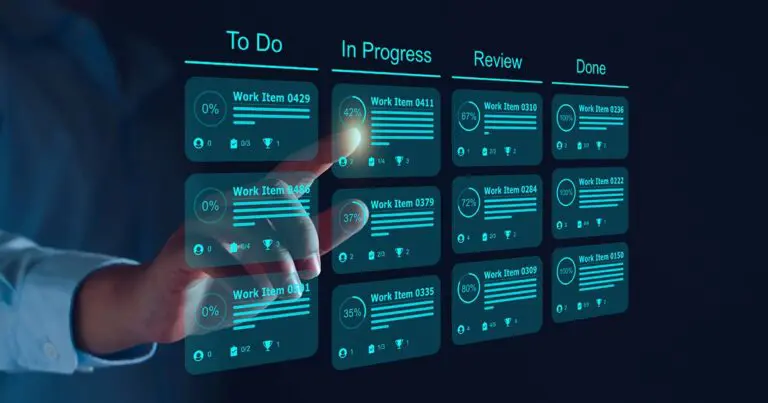How Automation is Shifting the Role of Human Resources

Automation, fueled by artificial intelligence and other technological advancements, is revolutionizing industries across the globe.
From manufacturing to marketing, automation tools are driving efficiency and transforming traditional workflows.
The field of Human Resources (HR) is no exception. As automation reshapes HR, understanding its role becomes critical for both business leaders and HR professionals.
This shift is transitioning HR from a focus on manual tasks to becoming a strategic role in organizational success.
The Traditional Role of HR
Traditionally, HR has centered on managing routine tasks like recruitment, payroll processing, and ensuring compliance.
These administrative tasks have historically required significant time and effort, leaving HR teams with limited bandwidth to focus on strategic initiatives.
However, these manual processes have posed challenges, including inefficiency, scalability issues, and high dependency on human intervention for repetitive tasks.
As organizations grow, these mundane tasks can hinder agility and innovation, highlighting the need for solutions that streamline the recruitment process, employee records management, and other essential functions.
5 Areas of HR Being Transformed by Automation
- Recruitment and Talent Acquisition
- Onboarding
- Payroll and Benefits Administration
- Performance Management
- Employee Engagement and Retention
1. Recruitment and Talent Acquisition
The recruitment process has been greatly enhanced by AI-powered chatbots and automation technologies.
These tools can screen resumes, match candidates to job requisitions, and schedule interviews efficiently.
Chatbots and virtual assistants provide initial candidate engagement, ensuring a faster, smoother hiring process while reducing reliance on manual tasks.
2. Onboarding
The onboarding process is also undergoing a transformation.
Onboarding automation enables seamless documentation, eliminating delays in compliance and paperwork.
AI-driven employee onboarding systems offer employee self-service tools, creating personalized training paths and improving employee experiences from day one.
3. Payroll and Benefits Administration
Automated payroll processing systems handle calculations, tax compliance, and employee benefits with unmatched precision.
Self-service portals empower employees to manage benefits, request updates, and track leave balances, minimizing reliance on HR teams for employee requests.
4. Performance Management
In Performance management, automation is enabling data-driven insights through real-time analytics.
Tools using predictive analytics deliver actionable feedback, enhancing employee performance and streamlining performance reviews.
Additionally, automated surveys help gauge employee satisfaction and engagement, supporting better decision-making.
5. Employee Engagement and Retention
Automation is pivotal in improving employee engagement and fostering employee retention.
By tracking satisfaction metrics, organizations can reduce turnover and implement engagement strategies like gamified skills development programs.
These strategies promote employee advancement and cultivate a supportive culture.
Shifting HR to a Strategic Role
Shifting HR to a strategic role involves data-driven decision-making, workforce planning and development, DEI initiatives and building organizational culture.
Data-Driven Decision-Making
Automation allows HR to prioritize strategic tasks such as workforce demographics analysis, management strategy, and culture-building initiatives.
By using data-driven decisions, HR professionals can shape talent management and development programs to align with organizational goals.
Workforce Planning and Development
HR can now focus on talent development and workforce planning. This includes identifying high-potential employees and creating employee development programs tailored to their growth.
Diversity, Equity, and Inclusion (DEI) Initiatives
Automation supports DEI efforts by reducing bias in recruitment and performance evaluation processes, enabling more equitable decision-making.
Building Organizational Culture
With automation managing mundane tasks, HR can foster a culture that prioritizes employee development, job satisfaction, and meaningful human interaction.
Challenges and Ethical Considerations of Automation in HR
Challenges and ethical considerations of automation in HR include over-reliance on algorithms, loss of personal touch, and data privacy and transparency.
Over-reliance on Algorithms
Overusing automated systems without human intervention can lead to unintended biases, affecting hiring and other critical decisions.
Loss of Personal Touch
While automation enhances efficiency, maintaining the human touch is vital to preserving authentic employee experiences and interactions.
Data Privacy and Transparency
As organizations collect vast amounts of data, ensuring employee privacy and transparent processes in automation software becomes crucial.
The Role of HR Professionals in the Automated Age
The role of HR professionals in the automated age involves data analysis and interpretation, emotional intelligence and interpersonal skills, and strategic thinking and change management.
Data Analysis and Interpretation
HR professionals must interpret data-driven insights to make informed decisions that align with organizational objectives.
Emotional Intelligence and Interpersonal Skills
Automation cannot replace the emotional intelligence required for addressing complex employee roles and maintaining a strong human element in HR processes.
Strategic Thinking and Change Management
HR’s pivotal role now includes implementing automation strategies that drive organizational growth and preparing teams for technological shifts.
How Staffing Agencies Can Support Automation in HR
Staffing agencies play a crucial role in helping organizations integrate automation by sourcing professionals skilled in both automation tools and the human element of HR.
They connect companies with candidates adept in leveraging automation for strategic tasks, ensuring a balanced, efficient workforce.
How Automation is Revolutionizing Human Resources
Automation is transforming HR by streamlining repetitive tasks, improving employee productivity, and enabling HR teams to focus on high-value initiatives.
While the transition may come with challenges, embracing automation offers unparalleled opportunities for growth.
To remain competitive, HR professionals must view automation as an augmentation rather than a replacement.
By partnering with a staffing agency, organizations can build a team ready to navigate this evolving landscape and achieve lasting organizational success.
Looking to hire top-tier Tech, Digital Marketing, or Creative Talent? We can help.
Every year, Mondo helps to fill thousands of open positions nationwide.
More Reading…
- The Role of Gig Workers in Digital Transformation Initiatives
- Why Blockchain is Essential for Supply Chain Jobs
- The Future of Project Management and the Jobs That Support Them
- How to Conduct a Skills Gap Analysis to Optimize Your Team
- Top Future Job Skills: Key Skills to Invest in Now
- The Rise of Fractional Executives: Part-Time C-Suite Leadership
- Why Are Salary Ranges So Wide? Understanding the Salary Spread Phenomenon
- Top 10 In-Demand Creative Roles for 2025 and Their Salaries
- Top 10 In-Demand Digital Marketing Roles for 2025 and Their Salaries
- Top 10 In-Demand Tech Roles for 2025 and Their Salaries
- Are Passwords Going Away? Why Traditional Passwords May Soon Be Obsolete
- My Team Was Laid Off: Now What?



